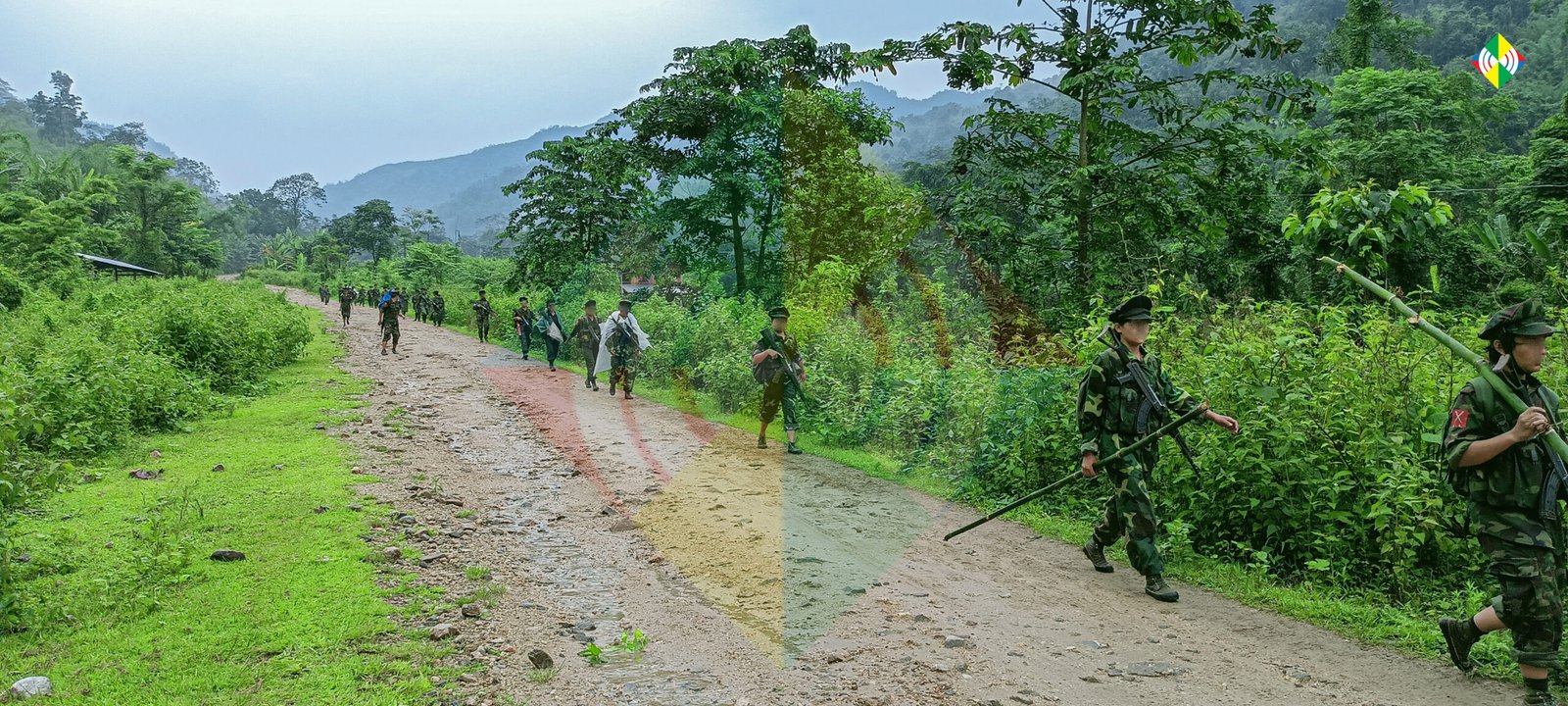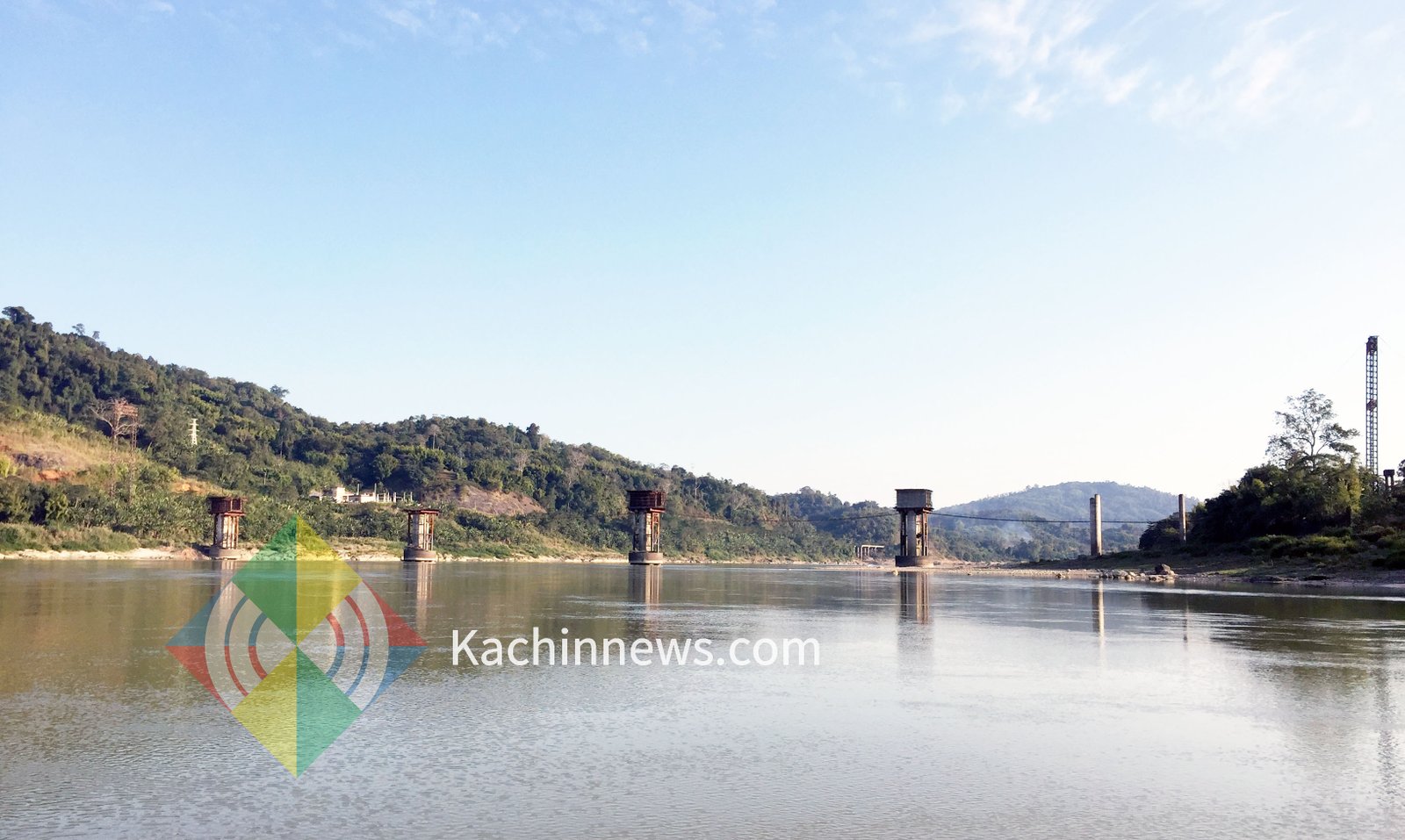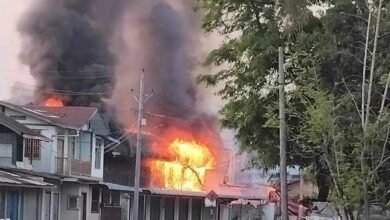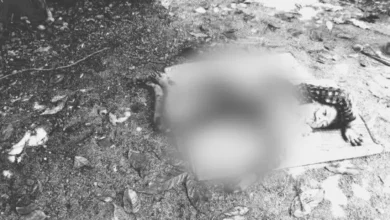Army Restricts Essentials In Bid To Subjugate Hpakant
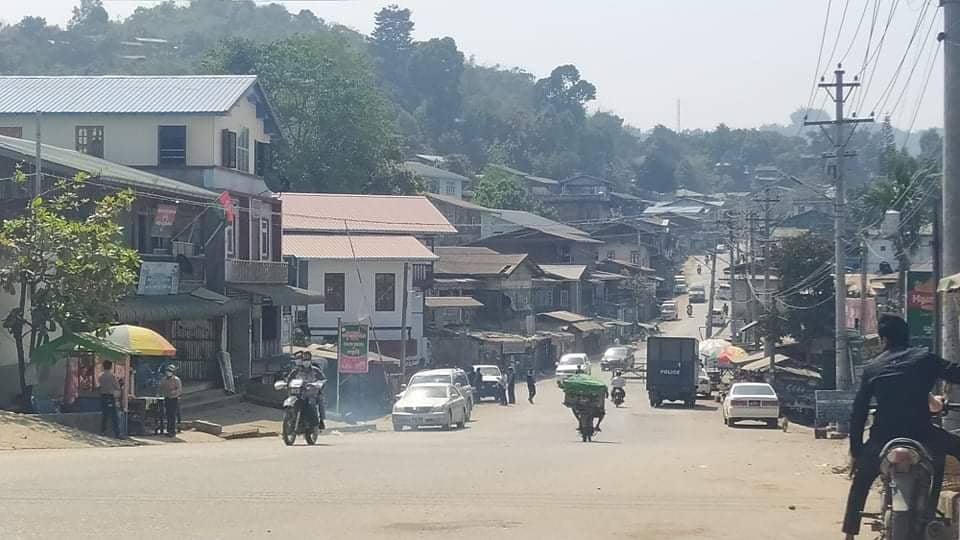
The Burma Army (BA) has restricted the supply of rice and fuel to Hpakant to prevent jade mining companies affiliated with the Kachin Independence Army (KIA) from operating in order to deprive the group and their ally, the People’s Defence Force (PDF), of its financial resources in the township in Kachin State.
“The BA wants to weaken the KIA by creating difficulties for them, so they’re banning jade mining companies suspected of having links with the KIA” to reduce the taxes the armed groups can collect from mines, a local told KNG on condition of anonymity. This also cuts into taxes derived from construction projects, shops and from vehicles transporting goods into the area.
According to Global Witness, Burma’s jade trade was worth $31 billion in 2014, accounting for nearly half of Burma’s annual GDP. Hpakant produces the highest quality jadeite in the world, most of which is distributed through China. However, uncontrolled mining has led to massive deforestation and erosion, which in turn has caused landslides that have killed hundreds of miners, who were buried alive or swept away in a massive tidal wave triggered by a mountain of mine waste that had fallen into an artificial lake in 2020 killing about 200 miners in the Southeast Asian country’s most horrific accident.
Both the junta and the KIA’s political wing, the Kachin Independence Organisation (KIO), rely on the rich deposits that are found in Hpakant to fund their armies. And the Kachin armed group distributes some of this revenue to the PDFs, other armed ethnic groups and the National Unity Government in exile, which the junta wants to stop.
There’s little doubt that the regime’s actions will have some impact on the Kachin group in the long run, the man said. “I think the KIO/KIA knows about this and may have to come up with a strategy to deal with this problem.” The civilian population will suffer a lot if the regime continues like this, he said, but it doesn’t care about the population and is willing to commit more human rights violations to maintain its power in the area.
Locals have told KNG that mining companies are trying to get around the restrictions by working at night, but they still need fuel and their workers need to eat. In Hpakant town, the BA stops everyone at a checkpoint in front of Myoma police station between 7am and 10am and between 2pm and 3pm to check their phones and vehicles.
Security has also been tightened in Lon Khin, Hseng Tawng, Sun Kywel and Gansi villages since 23 October. “They’re firing artillery at night, and last night they fired artillery from the Hpakant Strategic Command but I cannot say why,” said a man from Hseng Tawng on condition of anonymity.
More than 70 trucks carrying rice and fuel are stopped at the BA’s Nam Yar military checkpoint waiting for permission to pass. According to locals, each lorry has 300 bags of rice loaded, making a total of 21,000 bags of rice held up.
While the soldiers aren’t letting the trucks in, prices of rice and fuel have soured in Hpakant and it’s limiting mining and affecting the income of pretty much everyone in the township, not just the KIA, said another man who also requested anonymity. “Hpakant is ‘jade land’. Many people, including internally displaced populations, work here. Therefore, they should take care of the people. We’re suffering from a crisis between two powers.”
At the same time, the regime has stepped up its attacks on the KIA and is increasingly targetting civilians. Last month, regime fighter jets killed at least 78 people in an unprovoked attack on a music concert celebrating the KIO’s 62nd anniversary in A Nang Pa in KIA’s Brigade 9. A few days after the 23 October attack, 60 people were buried near Baw Ser Dee village near Ginsi. During the bombardment, about 50 people died instantly, while the others died after the regime stopped ambulances from taking them to hospitals in Hpakant or Myitkyina towns and prevented paramedics from reaching A Nang Pa. Soldiers arrested people who attended the concert.
In a statement, the regime has claimed it was responding to attacks by the KIA and PDF on its camps and that it followed the international rules of engagement during its bombardment.
NUG said the junta’s bombing was in violation of the Geneva Conventions.
Ambassadors from USA, Canada, UK, France, Australia, Germany, Italy, Netherlands, Spain, Norway, Switzerland, Czech Republic, Finland and Denmark condemned the attacks in a statement. “This attack underscores the military regime’s responsibility for crisis and instability in Myanmar (Burma) and the region and its disregard for its obligation to protect civilians and respect the principles and rules of international humanitarian law.”
Amnesty International’s Deputy Regional Director Hana Young said that “the military has shown ruthless disregard for civilian lives in its escalating campaign against opponents. It is difficult to believe the military did not know of a significant civilian presence at the site of this attack.” Since the 2021 coup, she said the “military has been committing widespread…including unlawfully killing, arbitrarily detaining, torturing and forcibly displacing civilians atrocities…in the face of an ineffective international response to a human rights crisis that is only worsening”.
After last year’s coup d’état, the regime stopped connectivity to the township except for Mytel, which is owned by the military. This makes it increasingly difficult to get information about human rights violations and war crimes against the population, such as those that happened in A Nang Pa, out of the township into the hands of rights groups and journalists.

